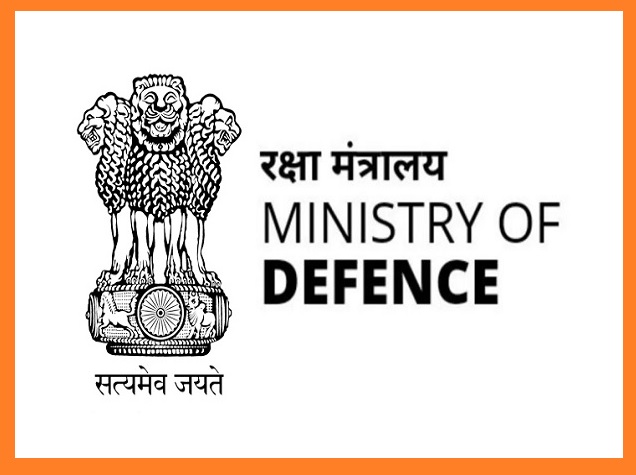MoD Launches DAP-2020 Review to Accelerate Make-in-India Defence
The Ministry aims for this updated DAP to serve not only as a tool for procurement but also as a catalyst for technological innovation, economic growth, and strategic autonomy.

- Country:
- India
In a major push towards bolstering defence preparedness and self-reliance, the Ministry of Defence (MoD) has formally launched a comprehensive review of the Defence Acquisition Procedure (DAP) 2020, as part of the Government of India’s broader reform agenda under the declaration of 2025 as the ‘Year of Reforms’. This initiative reflects the government’s commitment to modernising defence procurement, aligning it with national policy priorities such as Aatmanirbharta, Make in India, and the promotion of indigenous innovation.
Aims of the DAP 2020 Review: Streamlining, Modernisation, and Indigenisation
The DAP 2020, which serves as the backbone of India's defence procurement framework, is undergoing an intensive revision to better meet the evolving operational requirements of the Indian Armed Forces and to synchronise acquisition procedures with current government strategies and global defence trends.
The overarching objectives of the review include:
-
Timely modernisation of the Armed Forces through faster, efficient, and transparent procurement
-
Promotion of indigenous defence manufacturing under Aatmanirbhar Bharat
-
Enabling of ‘Make in India’ initiatives, including:
-
Joint Ventures (JVs)
-
Transfer of Technology (ToT)
-
Foreign Direct Investment (FDI) facilitation
-
-
Support for Startups, MSMEs, and private innovators
-
Integration of cutting-edge technologies such as Artificial Intelligence, quantum systems, robotics, and unmanned platforms into the acquisition ecosystem
Constitution of Expert Committee for DAP Review
The review process is being spearheaded by a high-level Committee chaired by the Director General (Acquisition) and includes:
-
Senior officials from the Ministry of Defence
-
Representatives from the Indian Armed Forces
-
Key stakeholders from the Defence Industry, including both public and private sector players
-
Experts from academia and research institutions
Notably, the Ministry has appointed Shri Apurva Chandra, a seasoned 1980-batch IAS officer and former Director General (Acquisition), as Principal Advisor to the Committee. His extensive experience in policy and procurement is expected to provide strategic insights and institutional continuity.
Stakeholder Consultation and Inclusive Reform
Recognising the importance of wide-ranging participation, the Committee has invited written suggestions from all stakeholders including industry players, defence experts, academic researchers, and policy institutions. Submissions are to be sent via email to secy-dap2025@gov.in by July 5, 2025.
The consultation aims to draw actionable insights on the following areas:
-
Procedural Reforms:
-
Streamlining procurement categories
-
Enhancing ease of doing business
-
Improving trial and testing protocols
-
Fast Track Procedures for urgent procurements
-
Better post-contract and lifecycle management
-
-
Policy Revisions:
-
Facilitating domestic production and reducing import dependency
-
Encouraging ToT and FDI inflows from global OEMs
-
Establishing India as a global MRO and manufacturing hub
-
-
Language and Clarity Enhancements:
-
Rectifying ambiguities and inconsistencies
-
Improving procedural documentation to ensure transparency and uniform understanding
-
-
New Technology Integration:
-
Guidelines for evaluating and adopting emerging technologies
-
Inclusion of AI, cyber warfare tools, quantum technologies, and autonomous systems
-
DAP 2020: A Backbone of Defence Procurement
The DAP 2020 replaced the earlier Defence Procurement Procedure (DPP) and introduced structural innovations such as:
-
Indigenously Designed, Developed and Manufactured (IDDM) category
-
Buy (Indian-IDDM) as the most preferred acquisition category
-
Simplified processes for Startups and MSMEs
-
Promotion of strategic partnerships between Indian firms and global defence OEMs
Despite these positive steps, feedback from stakeholders has indicated several areas needing further refinement, particularly in execution timelines, cost control, and clarity of procurement categories.
Alignment with National Security and Economic Goals
The DAP 2020 review comes at a time when India is scaling up its defence exports, which touched ₹21,000 crore in FY 2024–25, while also pursuing tech sovereignty in critical areas. The current global geopolitical climate further underlines the urgency for India to possess a robust, agile, and self-reliant defence acquisition framework.
The Ministry aims for this updated DAP to serve not only as a tool for procurement but also as a catalyst for technological innovation, economic growth, and strategic autonomy.
Way Forward
Once stakeholder consultations are complete, the Committee will deliberate on the proposed reforms and submit a draft of the revised DAP 2025 to the Ministry for review and approval. The revised policy is expected to be released before the end of the current financial year, providing a refreshed and forward-looking roadmap for defence procurement in India.
This ambitious initiative is a significant step in transforming India’s defence acquisition ecosystem, and aligns closely with broader national goals such as self-reliance, innovation-driven growth, and enhanced defence readiness.
- READ MORE ON:
- MoD
- DAP 2020
- defence acquisition
- Aatmanirbharta
- Make in India
- procurement reform
- defence manufacturing
- self-reliance
- defence exports
- Ministry of Defence
- DAP 2025 review
- Aatmanirbhar Bharat
- defence procurement
- Apurva Chandra
- defence reforms
- DG Acquisition
- military modernisation
- India defence manufacturing
- defence startups
- indigenous defence technology










